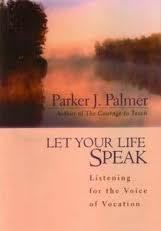 What do the two candidates running for president have in common? Really. If you watch the candidates from a “fair, non-snarky” point of view they are both a bit “aloof” and from someone who has been accused of the same, I do not necessarily think that is a bad thing. Add to that, I found someone who agrees with me. Evan Thomas, in an article from Time magazine, “The Upside of Mystery” makes an excellent observation.
What do the two candidates running for president have in common? Really. If you watch the candidates from a “fair, non-snarky” point of view they are both a bit “aloof” and from someone who has been accused of the same, I do not necessarily think that is a bad thing. Add to that, I found someone who agrees with me. Evan Thomas, in an article from Time magazine, “The Upside of Mystery” makes an excellent observation.
Having written a book on former President Eisenhower, he concludes that Ike would have disliked just about every aspect of the 2012 presidential election: “He would not have understood why candidates’ wives should give speeches to humanize their husbands or why presidential aspirants should disclose much of anything about their faith or private lives.”
Yet, the more he analyzes the two candidates, the conclusion is clear: “Romney can come off as plastic, Obama as aloof; they are both deeply private men who would have been more comfortable as politicians in an earlier, more buttoned-up time.”
Fact is, both men are more naturally inward and it is worth noting that the most important decisions a President makes are lonely ones.
Honestly, isn’t that the case for all of us who believe deeply in spiritual relationships? Isn’t that the case for those of us who recognize life is lived from the inside out? Isn’t that the case for those of us who think and listen and pray before we speak?
Wherever you are today, I hope you will be reminded, as I was this week, faith in God is about listening. Worship is about being present to your surroundings so you can create the space necessary to ease the world out and soak the Lord in.
James 1:19 says it best: “Let every person be swift to hear, slow to speak, slow to wrath.” No, inward isn’t all bad, especially when you are listening to God!
